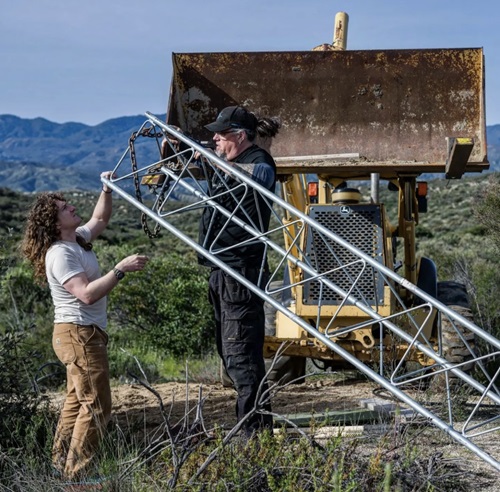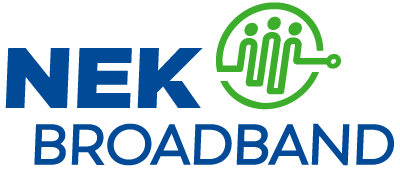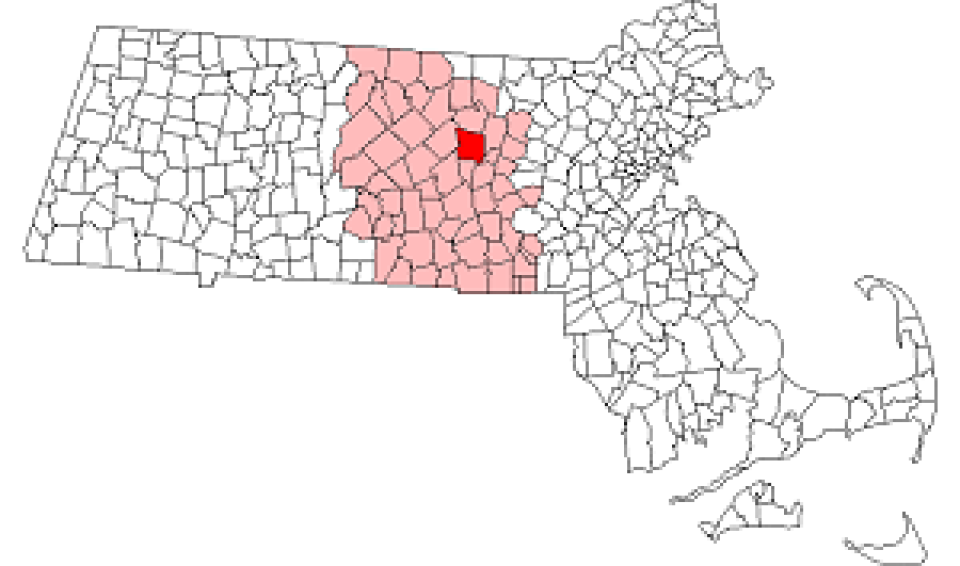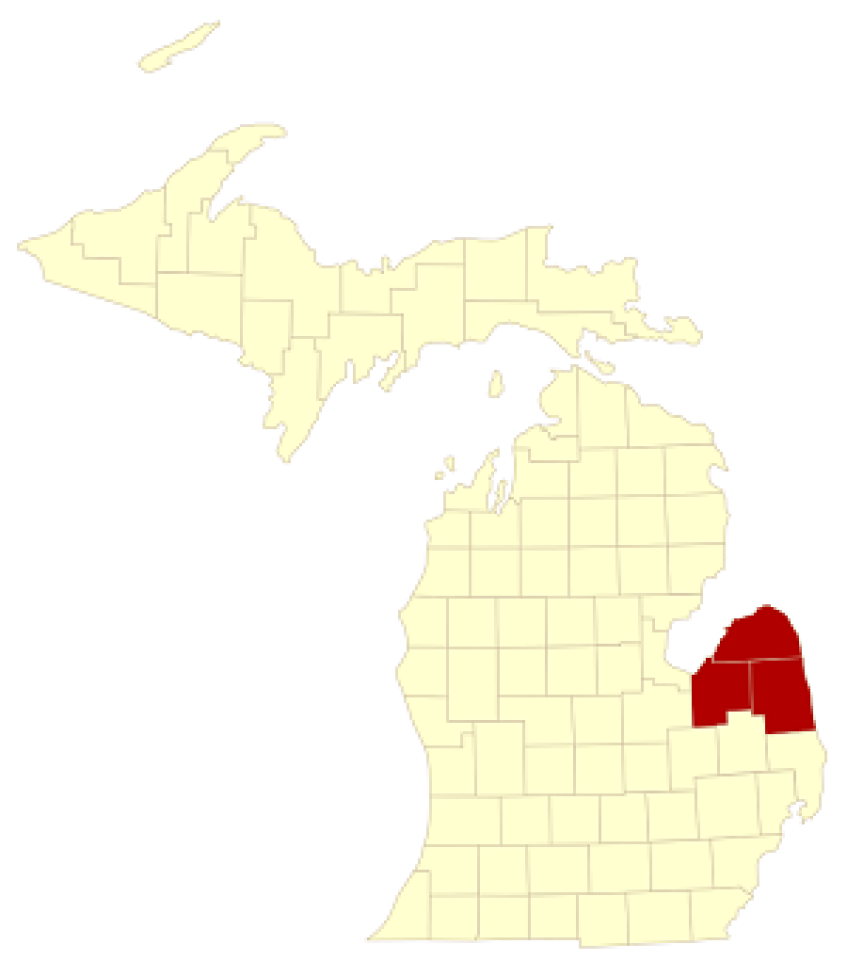
Fast, affordable Internet access for all.

The Tribal Broadband Bootcamps (TBB) – a three-day intensive learning experience focused on building and running Tribal Internet networks – are becoming even more immersive as the 11th TBB is now underway at the homestead of TBB co-founder Matthew Rantanen.
As more Tribal nations build out their own broadband networks to deliver service to Indigenous communities in the most disconnected areas of North America, broadband-minded Tribal leaders and instructors continue to gather in different Tribal regions across the country several times a year for the ultimate Indian Country networking experience.

This time participants descended on “RantanenTown Ranch” in Aguanga, California – part of southern California’s Inland Empire region near Temecula.
With help from ILSR’s Community Broadband Networks Initiative Director and TBB co-founder Christopher Mitchell, and a handful of other instructors, the ranch has been transformed into a working demonstration site so participants could better learn the technologies involved in constructing broadband networks, while taking a deep-dive into what it takes to operate a network.
All of the previous bootcamps offered hands-on training. But, this particular bootcamp took it up a notch as TBB instructors set up a full deployment demonstration, illustrating how fiber is buried and/or deployed aerially.
Digging In
The United States Department of Agriculture (USDA) has awarded a $17.5 million grant to NEK Community Broadband (NEK Broadband), providing another shot in the arm for Vermont’s fast-growing collection of Communications Union Districts (CUDs). Such CUDs continue to play a starring role in Vermont’s efforts to finally conquer the digital divide.
NEK Broadband’s latest grant comes from the USDA’s ReConnect Loan & Grant Program, which helps defray the costs of network hardware and broadband deployment to rural and traditionally underserved U.S. markets.
The program this week doled out an additional $714 million in grants and loans to projects across 19 states.
NEK Broadband officials say its $17.5 million award will be combined with a $5.8 million investment to deliver affordable fiber access to 3,295 homes, 94 businesses, 183 farms and 11 educational facilities across 22 towns in Orleans, Caledonia, and Essex counties in Vermont.

“For too long, large pockets of our state have been denied this critical resource because companies haven’t found it profitable enough to invest,” Vermont Senator Bernie Sanders said in an announcement of NEK’s latest grant. “This federal funding is transformative, because the money is going directly to the very communities who will benefit, instead of having to go through those who care more about profits than delivering service.”
As communities across the Commonwealth of Massachusetts are at various planning stages in laying the groundwork to build their own municipal broadband networks, a rural Bay State town about 50 miles west of Boston has moved past the planning phase and is now offering municipal fiber-to-the-home (FTTH) service.
In Sterling (est. pop. 8,000) – the town that lays claim to Mary Sawyer Tyler, said to have inspired the “Mary Had a Little Lamb” poem – the town’s municipal utility is building out its aptly named Local Area Municipal Broadband (LAMB) network.
The project was initiated more than five years ago as a new division within the century-old Sterling Municipal Light Department (SMLD). As one of about 40 of the state’s 351 towns and cities with its own municipal electric utility, SMLD was awarded a $150,000 state grant to help finance the construction of a 23-mile regional I-Net ring in 2020. A year later, LAMB lit up its first residential customer in April of 2021.

Following an incremental approach, earlier this year, the LAMB added its 50th subscriber as construction crews are on track to build out a town-wide fiber network by the end of 2024.
Connecting with Nearby Towns
Like other communities across the nation with an established municipal utility, from a design and engineering standpoint, it was a relatively easy leap into broadband for SMLD, which currently supplies electricity to more than 3,700 residential, commercial and municipal customers.
Along the shores of Lake Huron and across three rural counties in Michigan’s Thumb region, an electric cooperative is putting its thumb on the scale in favor of bringing fiber-to-the-home Internet service to its members.
Nearly 85 years after first delivering electricity to the region, Thumb Electric Cooperative (TEC) General Manager Dallas Braun announced the co-op had “started to lay the groundwork for a similar mission.”
“The mission,” he wrote in a recent edition of Michigan Country Lines, “is to provide much-needed fiber Internet service to those same sparsely populated areas by building a projected $80 million fiber network infrastructure that will be the superhighway of the Internet for future generations.”
The mandate came from members who saw ubiquitous access to high-speed Internet connectivity as a necessity of modern life much like the region’s rural farmers in the 1930s pined for electricity as they saw city residents enjoy a higher standard of electrified living.

It led to the creation of TEC Fiber – a new subsidiary of the TEC which currently serves 12,300 residents and businesses in Huron, Sanilac, and Tuscola Counties.
Foray into Broadband with an Air Advantage
The USDA’s ReConnect program has disbursed more than $1.5 billion since its inception in December 2018. On the whole, the USDA seems to have done a better job than the FCC of leading to new broadband infrastructure which is fast, affordable, and locally controlled. Much of the money it has given out has gone to community-driven solutions, with Tribes, electric and telephone cooperatives, and local governments applying for and winning awards. The program has also seen partnerships between counties and other public as well as private entities.
But there’s a lot to like about the newest round of funding, totaling $1.2 billion more (representing a full 80 percent of all money given out so far). The application process for Round 3 began at the end of November, with applications due by February 22, 2022.
Announced at the end of October, the new scoring metric represents a significant step in the right direction, increasing speed definitions on both sides of the application. But there are other things to like here as well.
Snapshot
Michigan broadband package repeals law prohibiting state grants from going to government entities
Montana Legislature duplicates federal limitations against schools and library self-constructing networks
U.S. House Republicans bill would give USDA authority over rural broadband, in place of FCC
The State Scene
Michigan
Michigan Gov. Gretchen Whitmer issued an executive directive on Wednesday establishing the Michigan High-Speed Internet (MIHI) Office, a new state office tasked with developing a strategy to make high-speed Internet more accessible to Michiganders.
Gov. Whitmer has argued that more than $2.5 billion in potential economic benefit is left unrealized each year due to a lack of Internet access across the state. MIHI will be housed inside the state’s Department of Labor and Economic Opportunity (LEO). Speaking of the new office, LEO Acting Director Susan Corbin said, “We need to make major investments to support digital inclusion and this office will be focused on leveraging every dollar available through the American Recovery Plan and other federal programs,” reports WILX.
Michigan lawmakers are moving to answer Corbin’s call and recently proposed a $400 million one-time allocation of incoming federal relief funds to the newly created MIHI to work toward expanding access to broadband. With the funds, LEO would be tasked with maintaining a statewide broadband grant program, the Connecting Michigan Communities Broadband Grant.
In a part of the Prairie State referred to as “Little Egypt,” a small county in southeastern Illinois recently received a big infusion of federal funds to expand its broadband network into neighboring rural counties.
In October of 2020, the USDA announced that the Hamilton County Telephone Cooperative was awarded a $20 million ReConnect grant and a $20 million ReConnect loan to bring broadband to over 19,000 residents, 462 businesses, 347 farms, 16 educational facilities, three post offices and four fire stations in Saline, Williamson, Franklin and White counties.
The $40 million in total Hamilton County received was a portion of the $600 million Congress appropriated to the USDA in 2018 to expand broadband infrastructure and services in rural America. In April of 2020, the USDA announced it had received 172 applications worth $1.57 billion in Round Two ReConnect requests.
The funds awarded to Hamilton County in the fall came on top of the $3.4 million from the state-wide Connect Illinois program and ReConnect funds the co-op received in February of 2020 to build out its Fiber-To-The-Premises (FTTP) network to connect more than 600 homes in the rural county with a population just over 8,000 residents.
Decades of Service
Last fall, we reported on the large number of community-owned broadband networks among the applicants for the first round of the U.S. Department of Agriculture’s (USDA’s) ReConnect broadband program, which awards grants and loans to expand rural connectivity.
Since then, the USDA has distributed more than $620 million to 70 providers in 31 states as part of ReConnect round one. Just over half of the awardees are community networks, including rural cooperatives, local governments, community agencies, and a tribal provider. The other ReConnect awardees are locally owned providers. Almost all grant and loan recipients plan to build high-quality fiber networks with the funds.
While the impact will be limited by the relatively modest size of the program and restrictive eligibility requirements, the ReConnect awards will nevertheless lead to improved economic opportunity and quality of life in rural areas. These investments will enable more rural Americans to take advantage of precision agriculture, online education, and telehealth visits — services that are now more important than ever as the nation finds itself in the grips of a pandemic.
Co-ops, Munis Win Big
Approximately 30 rural telephone and electric cooperatives in 16 different states are taking home ReConnect grants and loans from the first round of funding. Co-op awards include a nearly $19 million grant for Alaska-based Cordova Telecom Cooperative, a $28 million grant and loan for Central Virginia Electric Cooperative, and a $2.73 million grant for Emery Telecom for projects in Colorado and Montana.
Like most other aspects of life, the ongoing pandemic has disrupted the federal government’s plans to disburse grants, loans, and subsidies for the construction of rural broadband networks. But unlike the sporting events and concerts that can be put on an indefinite hold, these funds are now needed more than ever by the Internet access providers trying to connect rural households during a time when everything has moved online. Federal agencies, like the Federal Communications Commission (FCC) and the US Department of Agriculture (USDA), must find ways to manage the challenges caused by the spread of the novel coronavirus and to leverage their funds to support essential networks for families stuck at home.
These agencies’ main rural broadband programs — the FCC’s Rural Digital Opportunity Fund (RDOF) and USDA’s ReConnect — are at different stages, both in their funding cycles and in their response to the Covid-19 outbreak. The pandemic has already led to changes at the USDA, which has extended the ReConnect application deadline and is set to receive additional funds from Congress. Meanwhile, the FCC has yet to alter the upcoming RDOF subsidy auction, but it could speed up the process to address the current crisis, which threatens to linger through the summer.
While more must be done to address the many digital divides exacerbated by the pandemic, federal agencies should at least use existing programs to their full advantage to connect rural Americans during this unprecedented time.
ReConnect Extends and Expands

Earlier today, the U.S. Department of Agriculture (USDA) announced that it is extending the ReConnect broadband program round two deadline to March 31, 2020. The agency will distribute $550 million this year in grants and loans to expand connectivity in rural America. Previously, applications were due by March 16 to be considered for the funding.
In a USDA press release, Deputy Under Secretary Bette Brand said:
By extending the ReConnect Program application deadline, we are helping even more qualified organizations access the essential funding to make high-speed broadband connectivity a reality for rural communities across America.
Round and Round
Congress approved the initial $600 million for the first phase of the USDA's ReConnect program back in 2018. In 2019, the agency accepted round one applications for projects in underserved rural areas that haven't received goverment broadband funding before. Eligible entities included small Internet Service Providers (ISPs), rural electric and telephone cooperatives, local governments and tribal networks.
 So far, USDA has announced 70 grant and loan recipients across 31 states in ReConnect round one. We’ve written about a number of these awardees including, recently, Central Virginia Electric Cooperative, the Town of Arrowsic in Maine, and Alaska-based Cordova Telecom Cooperative.
So far, USDA has announced 70 grant and loan recipients across 31 states in ReConnect round one. We’ve written about a number of these awardees including, recently, Central Virginia Electric Cooperative, the Town of Arrowsic in Maine, and Alaska-based Cordova Telecom Cooperative.
Round two of the ReConnect program will distribute an additional $550 million, with awards to be announced later in 2020.
ReConnect’s Disconnect